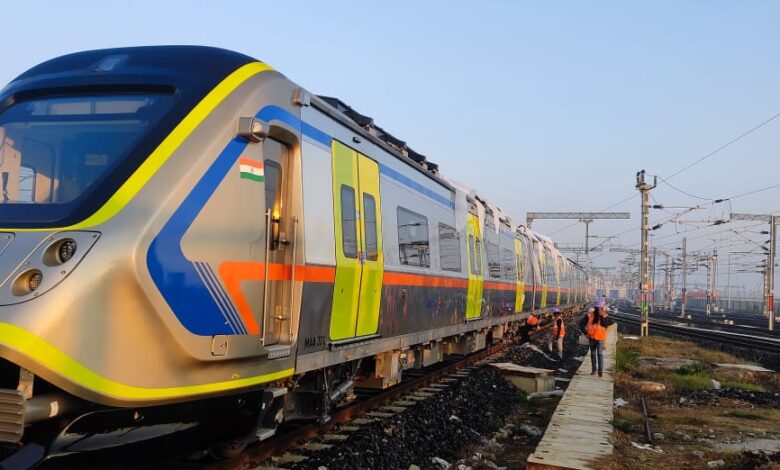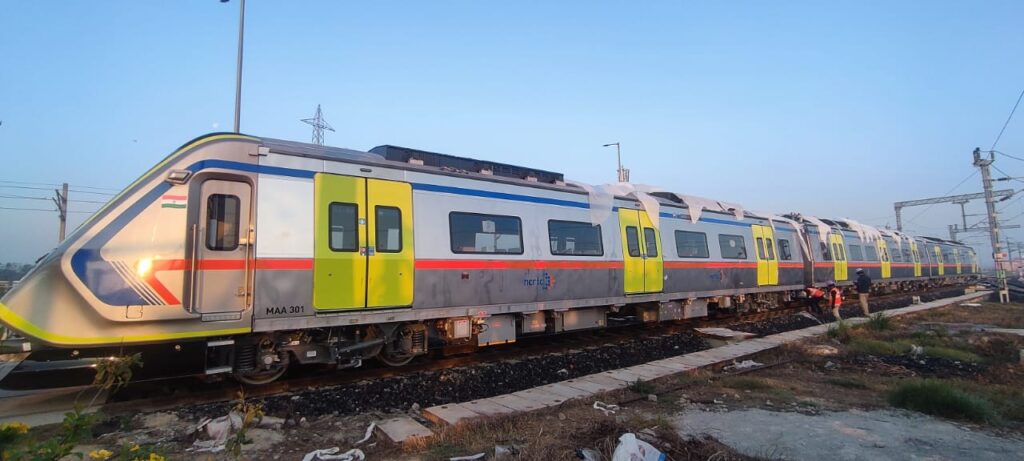First Meerut Metro Trainset Arrives at NCRTC Depot in Duhai

In a significant milestone for the Meerut Metro project, the first trainset has arrived at the NCRTC Depot in Duhai, Ghaziabad. The trainset, consisting of three cars, was transported on large trailers and arrived at the depot in the early hours of February 27, 2024.
The unveiling of the first look of the Meerut Metro trainset was done recently by Vinay Kumar Singh, MD of NCRTC. Following this, Alstom handed over the first trainset to NCRTC at Savli, Gujarat, marking the commencement of delivery. The arrival of the trainset at the NCRTC Depot in Duhai signifies a crucial step forward in the project.
The Make in India Meerut Metro trainsets boast a modern design, energy efficiency, and are equipped with advanced features such as regenerative braking systems. They are compatible with Automatic Train Protection (ATP), Automatic Train Control (ATC), and Automatic Train Operations (ATO), with a maximum operational speed of 120 kmph.
The Meerut Metro project aims to provide a safe, fast, and modern transportation solution for the residents of Meerut, Uttar Pradesh. With the arrival of the trainset, trial runs of the Meerut Metro are set to begin soon. The corridor spans 23 km with 13 stations, and construction is progressing rapidly.
Notably, both Namo Bharat trains and Meerut Metro will operate on the Delhi-Ghaziabad-Meerut RRTS infrastructure, a first in the country. To facilitate this, NCRTC has implemented advanced European Train Control system (ETCS) Level 2 signalling with Hybrid Level 3 over Long Term Evolution (LTE), enabling seamless integration of RRTS and metro services within Meerut.
The Meerut Metro trainsets feature a modern aesthetic approach, prioritizing passenger comfort, safety, and security. They are air-conditioned, with comfortable seating, luggage racks, CCTV cameras, mobile charging facilities, and dynamic route maps. Safety features include Platform Screen Doors (PSDs) at all stations, emergency egress devices, fire extinguishers, alarms, and talk-back systems. Additionally, provisions are made for carrying medical stretchers and wheelchairs in case of emergencies.





